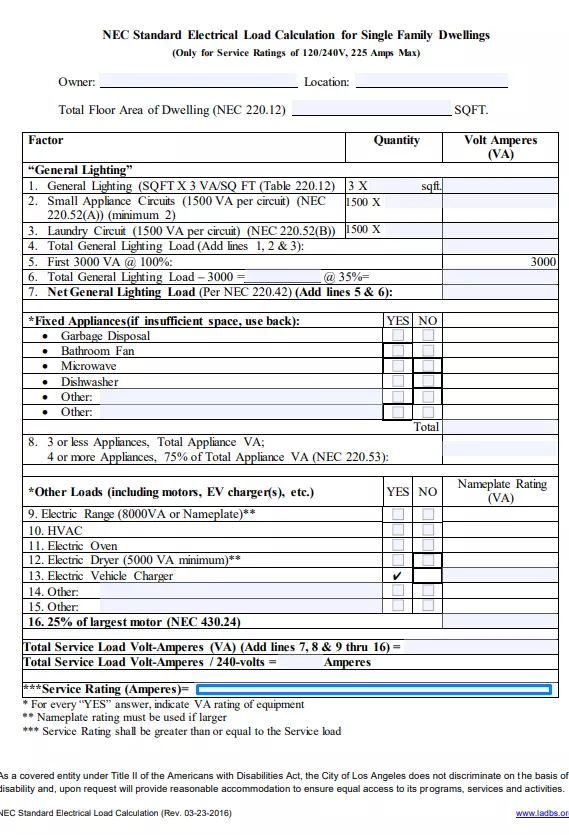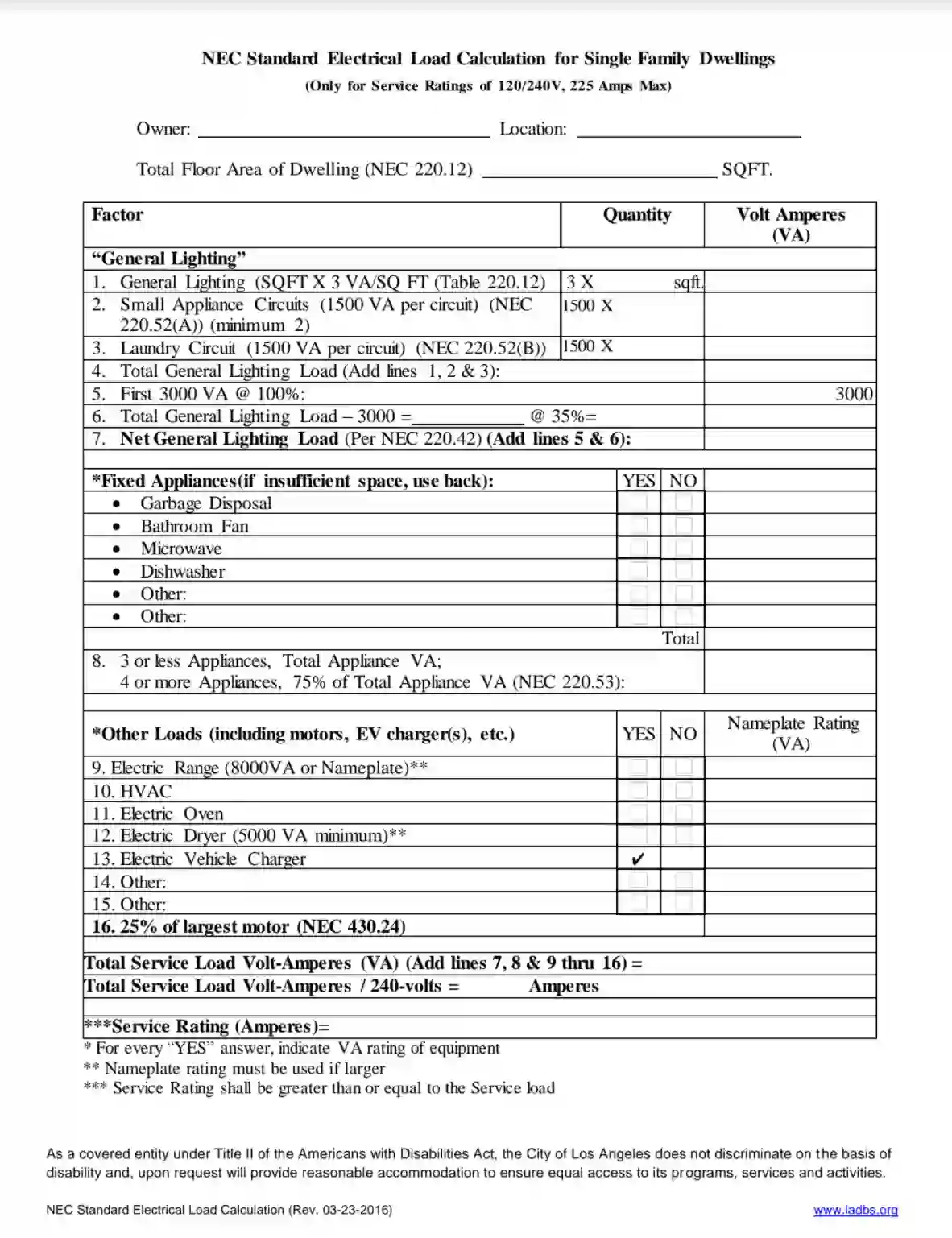The LADBS NEC Standard Electrical Load Calculation is a form used for single-family dwellings to calculate the standard electrical load based on guidelines from the National Electrical Code (NEC). Designed for service ratings of 120/240V and up to 225 Amps, the form facilitates the documentation of various electrical loads within a residence, including general lighting, appliance, and motor loads.
This form includes sections for calculating general lighting load based on the floor area, fixed appliances like garbage disposals and microwaves, heating, ventilation, air conditioning (HVAC) systems, and additional electrical equipment such as electric vehicle chargers. Filling this form ensures electrical systems are adequately sized and conform to safety standards, helping homeowners and inspectors maintain electrical safety and efficiency.
Other Local Forms
You will discover even more fillable local forms accessible with our editor. Just below, we selected several of the more popular forms within this category. Additionally, keep in mind that you are able to upload, fill out, and edit any PDF form at FormsPal.
How to Fill out the Worksheet
If you are not an electrician, you might find it complicated to complete the electrical load calculation sheet on your own. We advise you to go through the template without haste as even one little mistake can lead to serious miscalculations.
Make sure that you have obtained a correct template that satisfies all the NEC updated requirements. We encourage you to utilize our advanced and automated form-building software to find the relevant template or generate it yourself. Our PDF editor makes the process of filling out an online form much easier.
Below, we present detailed recommendations and instructions on how to complete the form step-by-step. Following the steps ensures successful and accurate calculations.
Enter the Name of the Owner
In the first blank line at the top of the document, you are to insert the full legal name of the person to whom the dwelling unit belongs.
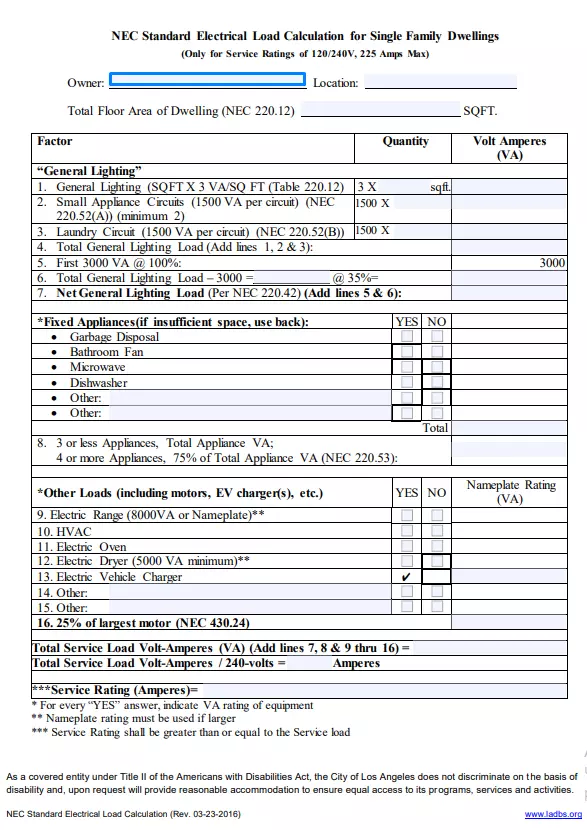
Provide Basic Information about the Dwelling Unit
In the following two blank lines, you are to give the basic description of your dwelling unit (a house, an apartment, and so on). The description includes the full address indicating the location of the unit and the total floor area measured in square feet (multiply the width of each room by its length and sum up areas of all the rooms in the unit).
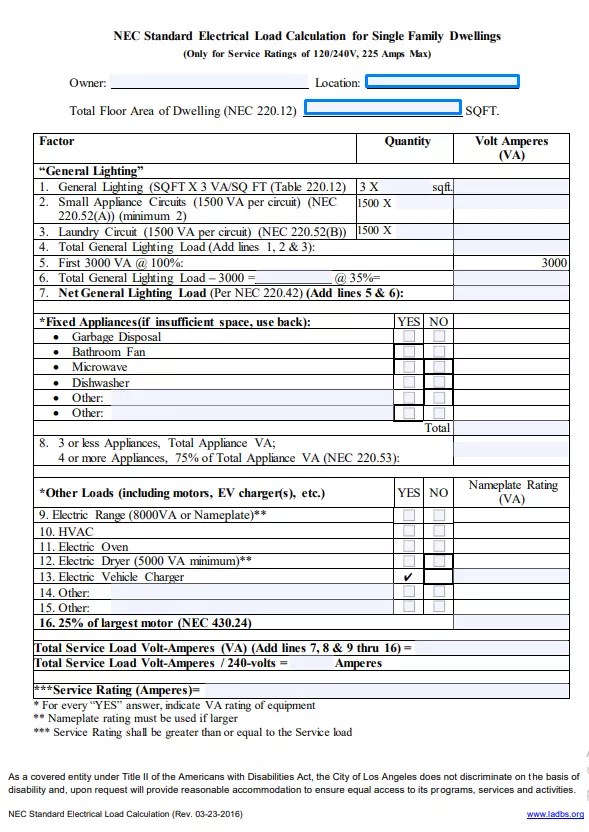
Calculate General Lighting Load
Now, you can proceed to calculations. Begin with the General Lightning section (the term refers to the background, overall illumination in a house). To calculate the load correctly, take the following steps:
- Write the total floor area (in square feet) and multiply by three volt-amperes (the apparent power for current systems). Enter the resulting product in the VA column.

- Write the number of small appliances circuits (according to the Code, you should include at least two branch circuits) and multiply it by 1,500 VA. Write the product in the second column.

- Make similar calculations for laundry circuits. Keep in mind that NEC requires that you enter a minimum of one branch circuit).
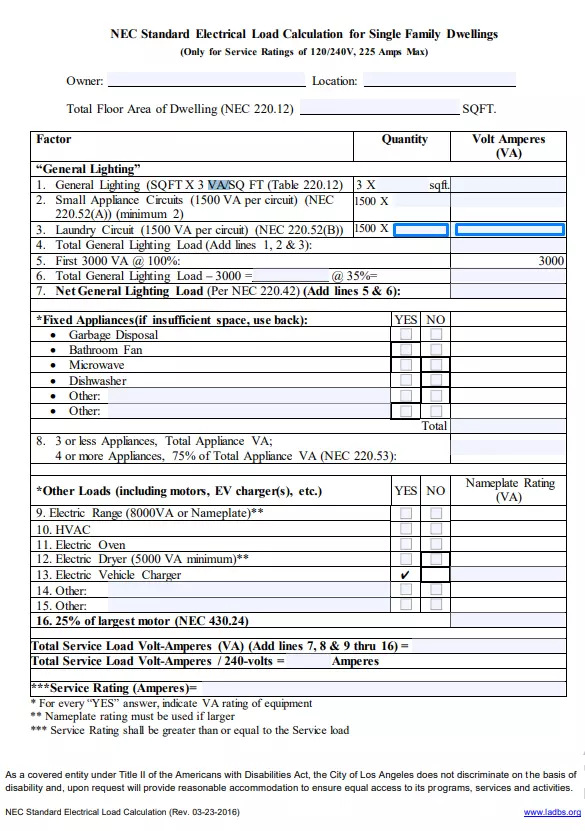
- Sum up all the products in the first three lines and write the total sum in the second column.

- Subtract 3,000 from the total load and multiply the difference by 0.35. Enter the numbers in line 6.
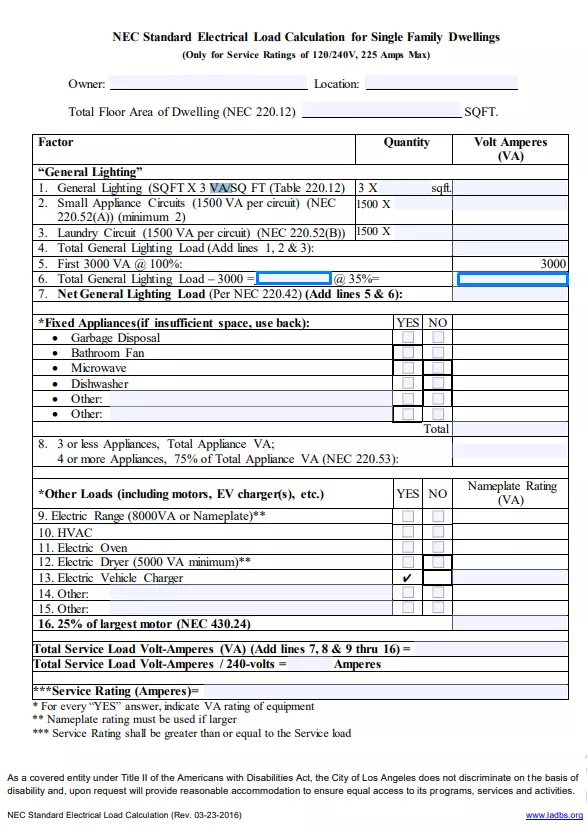
- Write the net general lighting load in line 7 (sum up the results from lines 6 and 5 and insert the total amount).
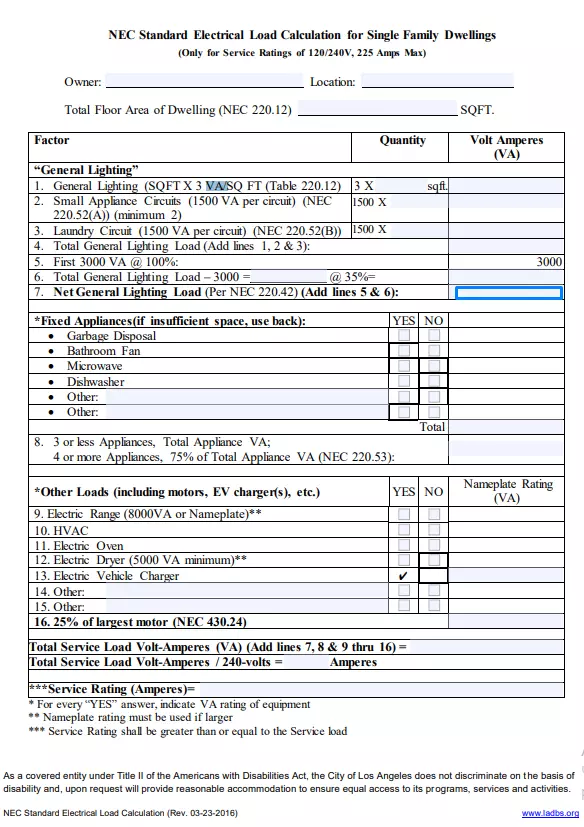
Specify What Fixed Appliances You Have
In this section, you are provided with a list of fixed appliances and ‘Yes’ and ‘No’ boxes. If you have any electrical appliances in your residential unit, check the ‘Yes’ box and write the load for this device. If the number of your appliances exceeds the one provided in the list, write the names of all devices you have in the ‘Other’ section and indicate their load (in VA). If the space in the sheet is not enough, use the back of the template).
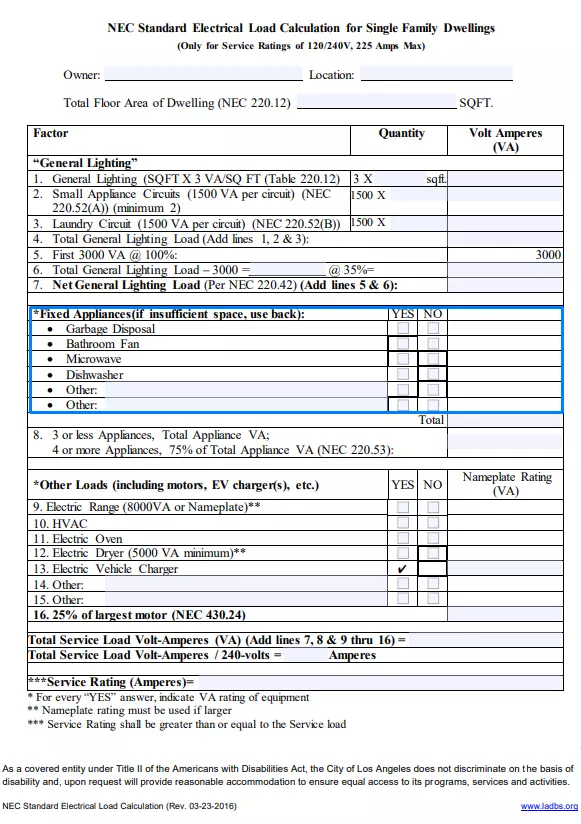
Sum up the designated loads of all the appliances in the premises and write down the total electrical power consumed in the VA column.
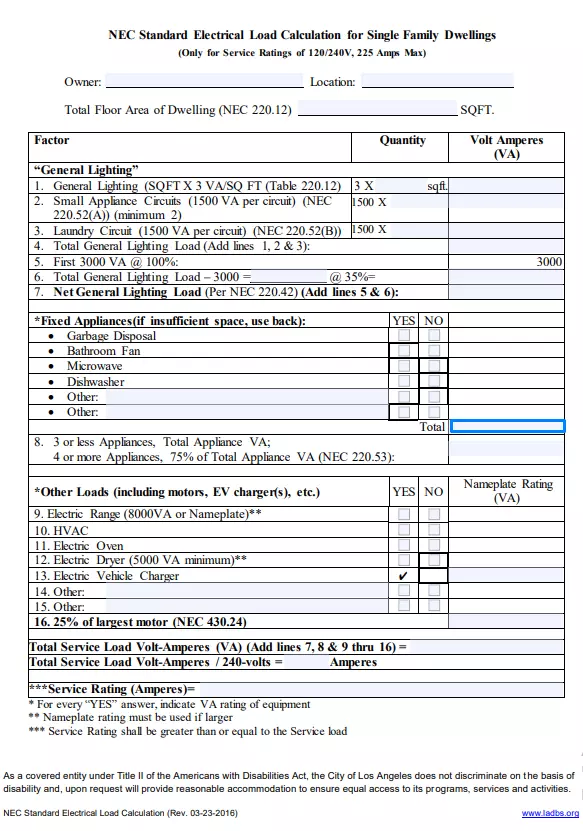
If you have fewer than four units, you do not need to make further calculations; just put the total load in line 8. If the number of units is four or more, you are to multiply the total VA by 0.75 and enter the product in line 8.
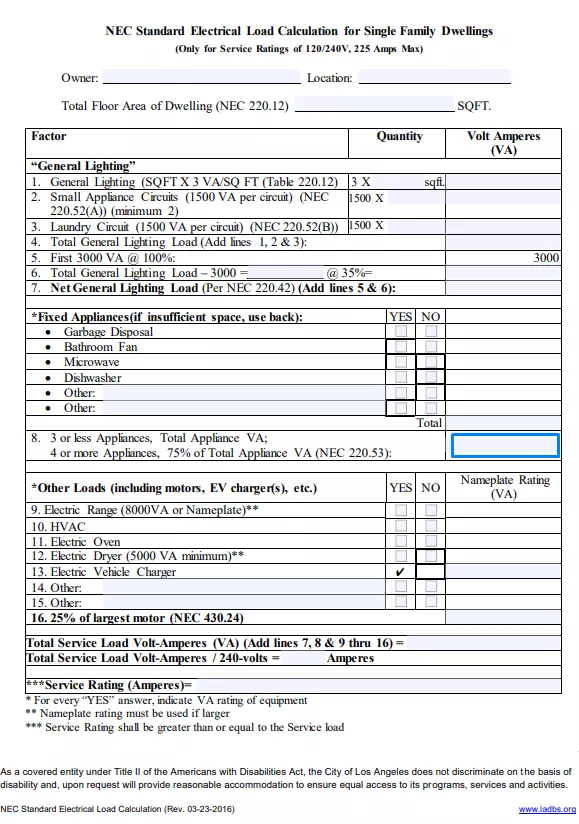
Indicate the Load of Other Equipment
Like in the preceding section, you are to select either the ‘Yes ‘ or ‘No’ box. If you check the ‘Yes’’ box, include the VA rating (or installed capacity). If you have the equipment, the name of which is not presented in the list, write it in the ‘Other’ line.

Determine equipment with the largest motor load and calculate the 25 percent of it. Write the result in line 16.
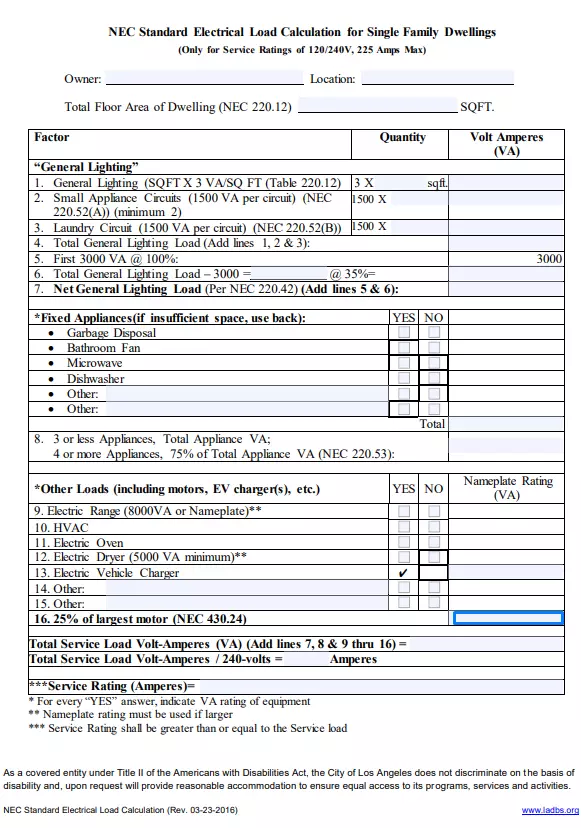
Calculate the Total Service Load and Service Rating
Sup up the results from lines 7, 8, 9-16, and you will get the total service load in volt-amperes.
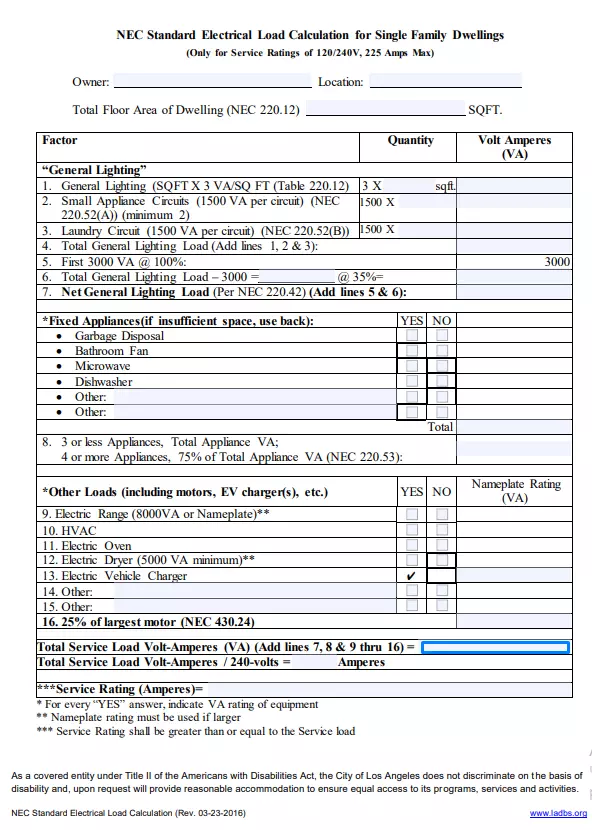
Divide the result by 240 and write the total service load in the next line (in amperes).

Enter the electrical service rating and compare it with the service load. Service rating should be equal to or greater than the load.
